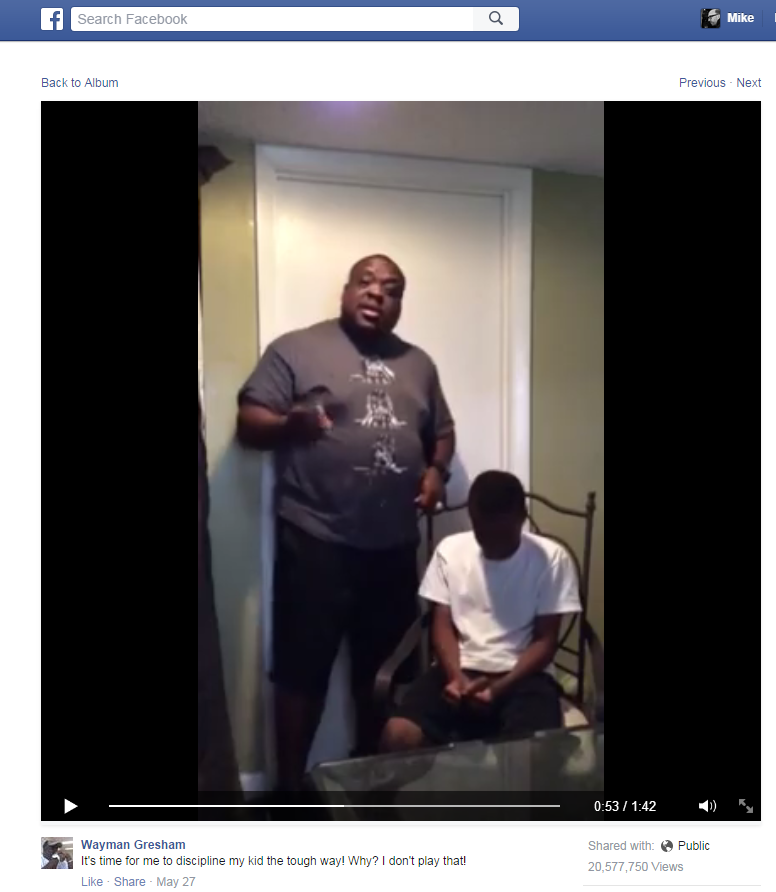Is it OK to humiliate your child online?
- Published

Wayman Gresham's anti-shaming video has been viewed more than 20m times
Amid a deluge of child-shaming videos, one American dad's anti-humiliation film has been viewed millions of times.
Shame has long been part of the parenting repertoire. Caught pinching sweets? A parent might march the child back down to the shop to apologise to the owner. In playgrounds all over the world, children are forced to publicly apologise to peers they've tormented with sharp elbows and thrown sand.
But in an era when many young people live their lives on the internet, the internet also gives parents entirely new shaming possibilities. There's recently been a spate of videos where parents have taken to social media to embarrass or humiliate their wayward youth. There was ... the mother who ... and .
But one father of four in Florida has waded into the debate with a video arguing that online shaming has gone way too far. (and counting), Wayman Gresham stands over his son with an electric razor: "I'm going to teach my son a lesson." The boy, his head down, plays along. But just before the first cut is made, Gresham calls the punishment to a halt: "Wait a minute. Come here boy, give me a hug.
"There's no way in the world I would ever embarrass my son like that," he says into the camera. "It doesn't take all that. Good parenting starts before he even gets to the point of being out of control." Gresham's video, which promotes a play he wrote and directed, also includes a strong Christian message.
"I've gone on Facebook and many times I've seen this kind of punishment, cutting off the hair or a child being embarrassed one way or another," Gresham told Βι¶ΉΤΌΕΔ Trending. "There is no legitimate reason for humiliating your child, there is no legitimate reason for snatching their dignity away."
"I wouldn't dare call these parents 'bad parents' because they made bad mistakes," he said. "Nevertheless, to get on Facebook and humiliate your child like this, it's not for the benefit of the child. The overall message is, we could all do better as parents."
Many experts agree. Child psychologist Karyl McBride told Trending: "I think it would be difficult to find someone in the field of psychology and mental health who would say [public child shaming] is appropriate."
"When parents are shaming and humiliating children, that impacts the child's ability to have proper bonding and attachment with those parents. It impairs trust," she says. "It causes the children to grow up with internal messages of 'I'm a bad person.' And that's not going to develop a healthy human being."
Shaming videos have sharply divided the opinions of the general public - for example, some felt that Val Starks, the Denver mother who online, was doing a good job. "You are trying to preserve her innocence and childhood," read one comment on Starks's video. Many others, though, took the opposite view. "This isn't good parenting," one commented, "this is bullying."
Blog by Mike Wendling, external
Next story:
When British mathematics students tumbled out of this year's GCSE exam (given to 16-year-olds), one very difficult question was on their minds.
Follow Βι¶ΉΤΌΕΔ Trending on Twitter , and find us on .